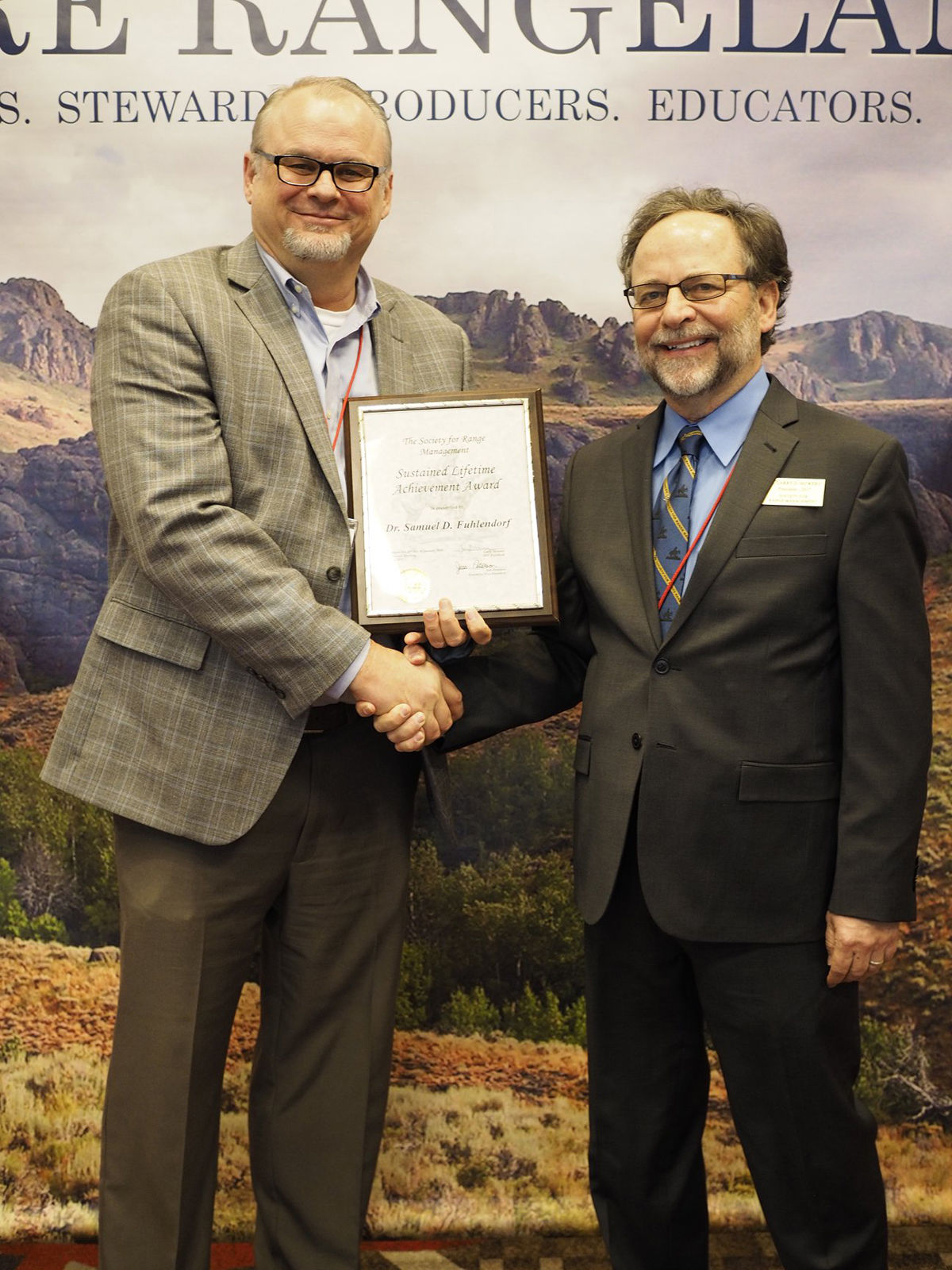Fuhlendorf honored with Society for Range Management’s Sustained Lifetime Achievement Award

He joined the Society for Range Management in 1990 and that means Sam Fuhlendorf has been a member for just a tick over half his life. That may be the case, but he has been a well-known name in the world of range management for even longer.
Fuhlendorf was recently honored at the Society’s 71st Annual Meeting in Nevada with the Sustained Lifetime Achievement Award.
“It’s a great honor,” he said. “I never imagined receiving this award or even the long interaction that I’ve had with the society. Receiving the award makes me think about how many people have helped me through this society over the years. It was amazing to go to the meeting and see so many former students that now have students of their own.”
This prestigious honor is given to those who have made long-term contributions to the art and science of range management and to the Society. Fuhlendorf joined Oklahoma State University’s Department of Natural Resource Ecology and Management as an assistant professor in 1997. After climbing the ranks, he became a Regents professor in 2013 and was named the Groendyke Chair in Wildlife Conservation in 2014.
“We are very fortunate to have Dr. Fuhlendorf as part of the NREM department. He brings a level of knowledge and insight to ecological issues—mainly focused on grasslands and rangelands—that is recognized around the world,” said Jim Ansley, NREM department head. “He and his collaborators have been very successful in securing grants and documenting their research through publications in high quality journals. The grants have allowed Sam to recruit many graduate students and postdoctoral associates, and many of these students now occupy key positions in academia, or with agencies or in the private sector.”
Fuhlendorf has become one of the preeminent rangeland ecologists of this generation, as his innovative work has shaped the field of rangeland ecology and management in many ways. He has been a leader in developing a novel approach to land management, known as pyric herbivory, which is the ecological interaction of fire and grazing that is critical to patterns of biodiversity.
He has a burning passion for rangeland management and sees the importance of his work.
“Rangelands are the dominant land type in Oklahoma, the U.S. and the world. They’re extremely important from a conservation perspective because they are by definition native ecosystems—so that means they contain our native species that are well adapted to our environments,” he said. “That said, they also are important to agricultural production. Most of the big ranches in the state are made up of rangelands and Oklahoma has some of the most productive rangelands in the world.”
While this award is something he is quite proud of, it is the function of the club and the future of rangelands that keeps his motor running.
“It was exciting to attend the meeting and see my mentors and the former students I’ve mentored and watch them interact with their students. It is nice to see the continuum and know that it carries on,” he said. “I also want to point out that even thought it is a Sustained Lifetime Achievement Award—last week I had my 54th birthday and I have lots of years to continue working.”
